GREEN ECONOMY AND GREEN FINANCE IN THE FOCUS OF SUMMER SCHOOL IN KYIV
The International Summer School “Green Economy: Theory and Policy” took place for the fifth time in Kyiv (Ukraine) on 30-31 August and invited almost 30 participants from Ukraine, Germany, France and Spain. In 2018 the Summer School was organized by Center for Blended Value Studies (CBVS), Green Business School (GBS), Deloitte Ukraine, University of Bremen, Working Group on Economic Administration (AWV), Scientific Society of National Economic University Kiev named V. Hetman, Helmholtz-Centre for Environmental Research (UFZ).
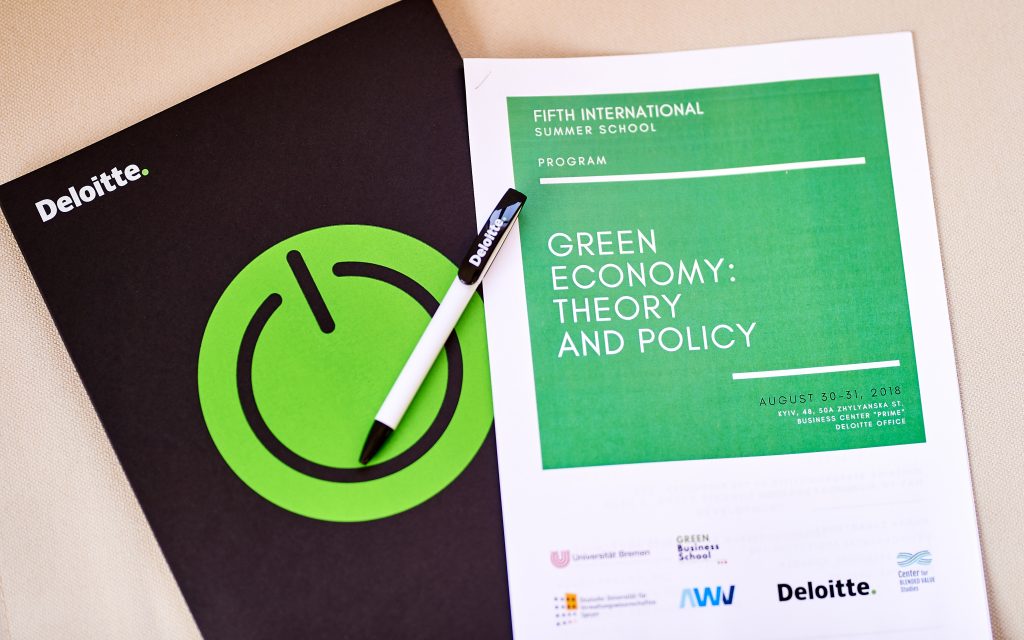
© Yuryi Strokan
At the beginning of the first day of the Summer School, the representatives of GBS, Presidential Administration of Ukraine, State Agency for Energy Efficiency and Energy Saving of Ukraine, AWV and Deloitte Ukraine welcomed the participants and gave an overview of the event`s program.
First presentation by Mrs. Anna Tarantsova from “Tetra Pak Ukraine” was not only about the basics of the circular economy, but also brought concrete case studies from the area of “Waste Management” with emphasis on Ukraine. Participants of the Summer School were able to get information about the current situation in Ukraine and work out suggestions for the possible reforms together.
During the second lecture of Mr. M. Fette from Fraunhofer IFAM (Bremen) participants had the opportunity to get the results of a study «The Role of CHP (Combined Heat and Power) in the Energy Transition”. Although, the presentation contained a wide range of special technical details, the scenario analysis for transferring from the fossil fuels to renewable energy for CHP was very profound and detailed. The proposals were also particularly important for the Ukrainian energy industry with regard to the current political tension with Russia.
Shortly after the lunch break, participants of the Summer School had the opportunity to discuss digitization in Germany from the presentation of Dr. U. Naujokat (AWV). As examples, the numerous projects in various areas in Germany were presented, in which AWV acted as a contractor for the digitization projects in the area of taxation, public procurement, etc. It is clear that digitalization is primarily about Internet access at high speed. In this case, we have to solve the numerous problems in order to make digitization possible and to equalize the situation in different federal states.
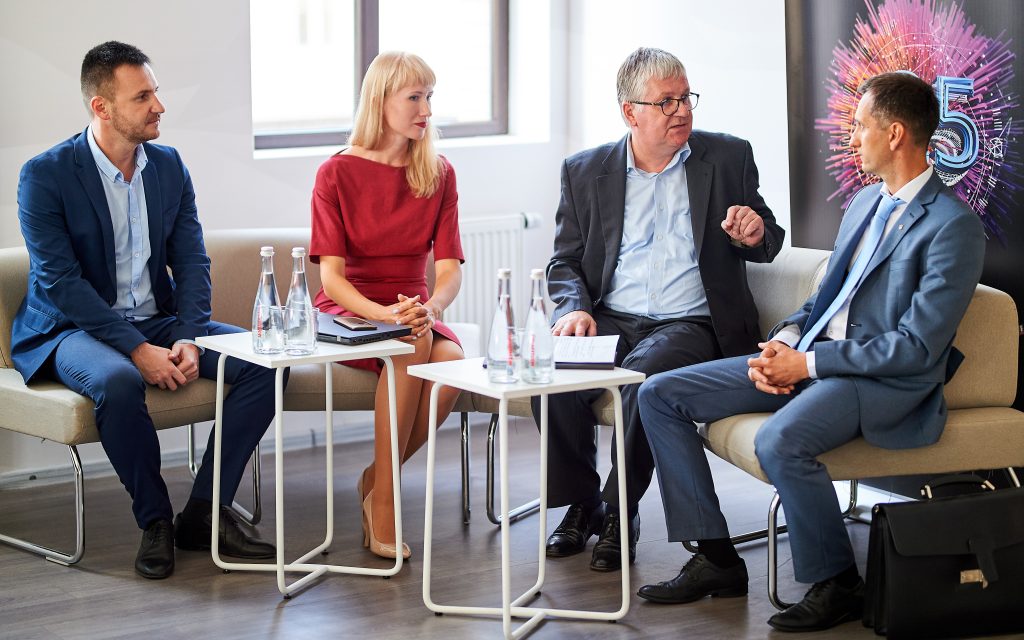
© Yuryi Strokan
Blockchain technology and its application in energy and financial sectors was the topic of the lecture by Mr. O. Hychka from Center for Blended Value Studies (Kyiv). So, it is already clear that companies in both sectors are already very actively using this technology to both solve security and reduce transaction costs. As examples, many were mentioned in the above areas (Enerchain, Digital Assets, etc.). For Ukraine it would be important as soon as possible to put the existing capacities in the energy industry and also the financial transactions massively on this technology to also enable the European integration.
At the beginning of the second part of the Summer School, the measures for establishing a green financial market were outlined in the presentation of Dr. A. Frolov from the State Agency for Energy Efficiency and Energy Saving of Ukraine. In fact, the building up of a green market is about the so-called “Green Bonds” and the necessary legal framework is already delivered in the Association Agreement with the EU. So, this task could not only allow us to mobilize green finance, but also should accelerate the European integration.
First presentation on the second day of our Fifth International Summer School was presented by Prof. Dr. A. W. Heinemann from the University of Bremen. The presentation “Green Smart Local Tax” was used to explain the background and benefits of introducing a local green tax. The necessary reforms are needed to make taxation more efficient at the local level and to raise the necessary funds for green projects.
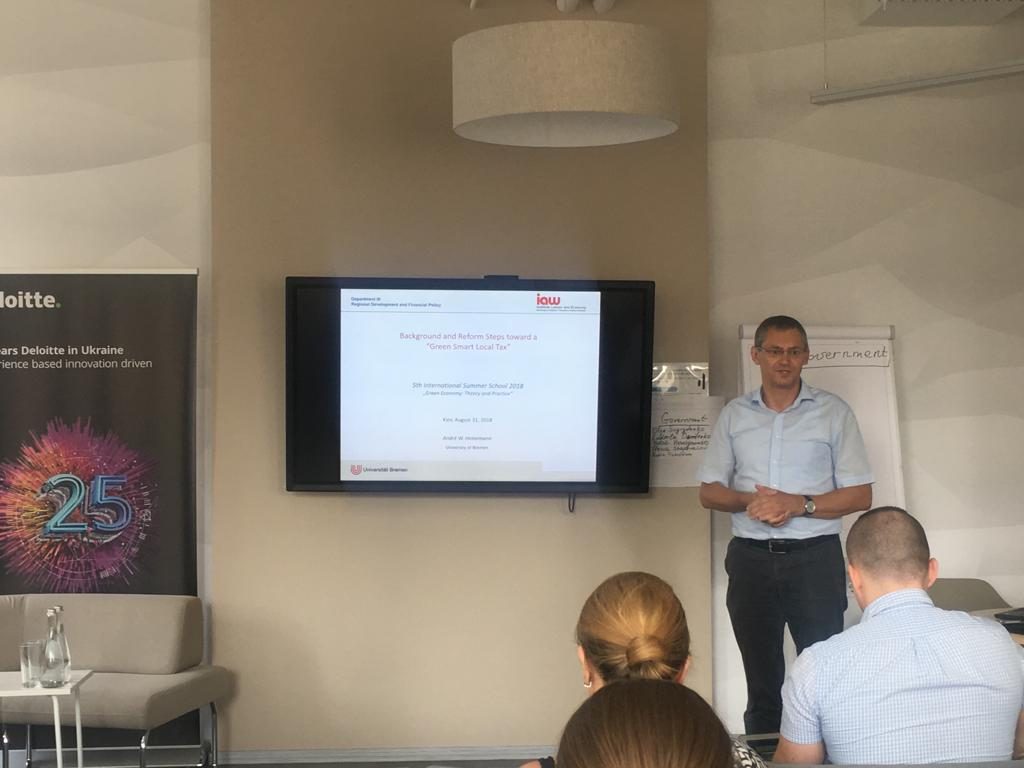
Green financial policy is a new direction and important tool for building up a green economy. It encompasses both sustainability to non-financial risks and access to public funding with combination of market-based instruments. All these aspects were discussed during the lecture of Dr. O. Sushchenko (UFZ and Green Business School). It was stated that all the necessary guidelines for establishing a green fiscal policy are already given in the Association Agreement with the EU. Therefore, meeting the commitments under the Association Agreement and implementing all this as soon as possible will help to create the necessary legal framework for green fiscal policy and facilitate European integration.
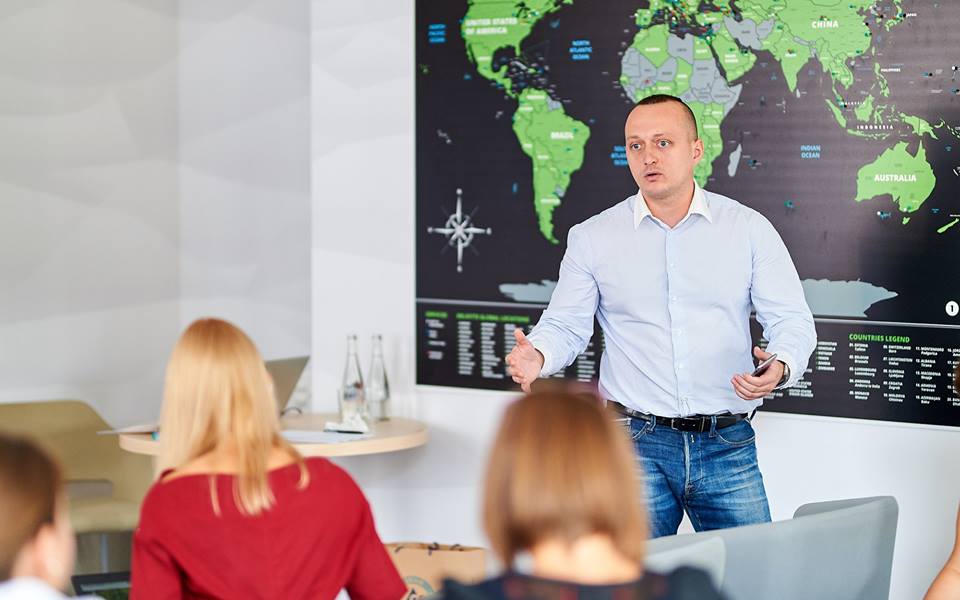
© Yuryi Strokan
Prof. Dr. R. Schwarze from the UFZ has presented in his lecture the basics of «Urban Climate Financing». Mostly, it’s about the cities and regions where the number of citizens has already increased and will continue to climb in the next 20 years. So, almost 80% of the population will be living in the cities by 2050 and we have to start thinking about it today and redirect necessary financial resources to the local level. Only this way we could prevent the negative effects of climate change and make our lives more sustainable.
At the end of the second day of the Summer School participants had an opportunity to talk with Ms. O. Chernigevych from Deloitte Ukraine about the successful experience of Luxembourg. Also, the participants could discuss the possible ways to implement this experience in Ukraine. It was of particular interest, because Luxembourg is a Marketplace with best conditions, created to mobilize green finance for developed and developing countries. Even without the implementation of necessary reforms in Ukraine, our companies and cities could use existing mechanisms for mobilizing green finance in Luxembourg and finance sustainable projects at home.
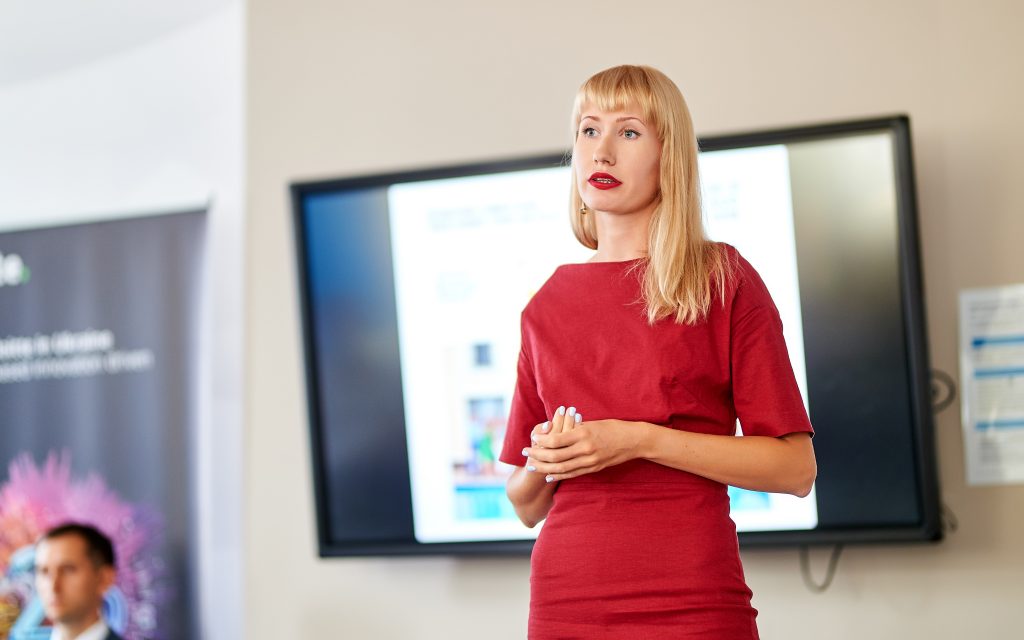
© Yuryi Strokan
The results of the work in groups (building up a green economy in Ukraine) were collected and passed on as the proposals to the state authorities. These will be incorporated into the regulations and legal acts in the coming months – will help us to establish a green financial market in Ukraine to raise funds for green projects and build up a green economy.
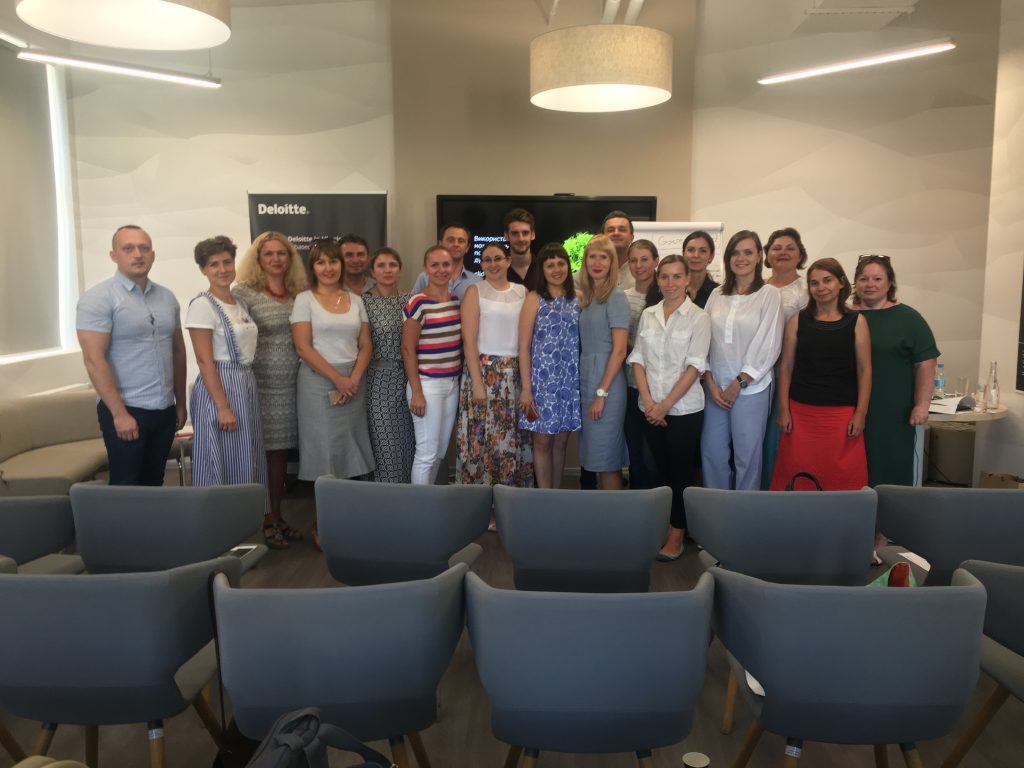
See you next year at the VIth ISS “Green Economy: Theory and Policy”!
